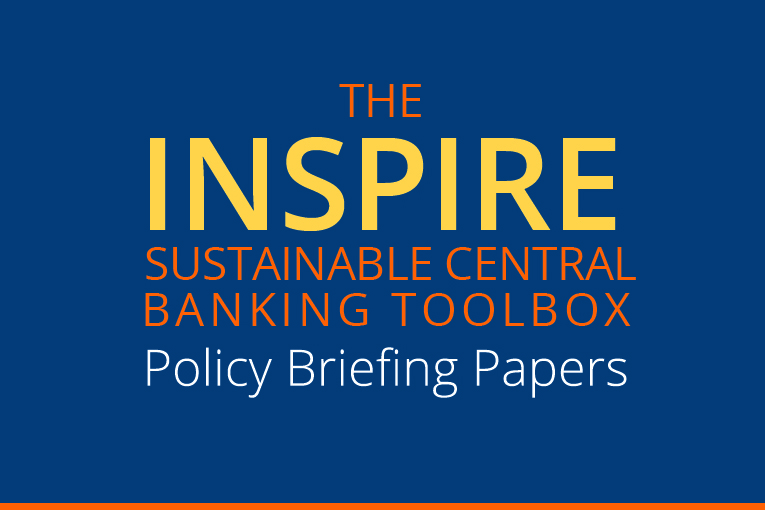Beyond climate: addressing financial risks from nature and biodiversity loss

Download
INSPIRE Central Banking Toolbox – Policy Briefing no. 9
Globally, the richness and diversity of nature has declined at unprecedented rates over recent decades, posing far-reaching systemic risks for the financial sector. The impacts of biodiversity loss call for urgent and transformative changes to economic and financial systems.
This paper discusses the need to extend the scope of central banks’ approach to the environmental crisis to include the drivers of biodiversity loss, how climate and biodiversity interact, and the transmission channels of nature-related risk.
Main messages
- Just as a stable climate enables the conditions for humans to thrive, biodiversity enables the natural world to be productive, resilient and adaptable, and to provide ecosystem services that are vital for the functioning of the global economy.
- It is increasingly important to assess the risks that can arise from biodiversity and nature loss (physical risks) and the potentially profound socioeconomic changes (transition risks) linked to the need to protect biodiversity.
- There is an emerging understanding of the significance of the financial impacts of biodiversity loss and nature degradation, but work in this area is nascent. This is partly because assessments of potential nature risks and exposures are significantly more challenging to make than for climate risks.
- While only a limited number of policy tools have been developed, there are a range of options for integrating nature and biodiversity loss considerations into existing policy frameworks. These include updates to microprudential policies and disclosure requirements, and the use of macroprudential assessments and scenario analysis.
- Climate change and biodiversity loss are inextricably interrelated and should not be treated separately or sequentially. Addressing either the climate or the biodiversity loss crisis without consideration of the other could lead to a failure on both fronts.
- While central banks and supervisors cannot resolve nature loss and its ensuring risks, they have a key role to play in managing them and scaling up sustainable finance to build a nature-positive economy.
- The Taskforce on Nature-related Financial Disclosures (TNFD), recently launched by the Network for Greening the Financial System (NGFS), is expected to contribute to mainstreaming the consideration of nature-related financial risks across central banks’ and supervisors’ activities, and help central banks and supervisors to address the critical challenges that they face.
This paper is part of the INSPIRE Sustainable Central Banking Toolbox, which is designed to support central bankers and financial supervisors in calibrating monetary, prudential and other instruments in accordance with sustainability goals as they address the ramifications of climate change and other environmental challenges. The papers have been written and peer-reviewed by leading experts from academia, think tanks and central banks and are based on cutting-edge research, drawing from best practice in central banking and supervision.

